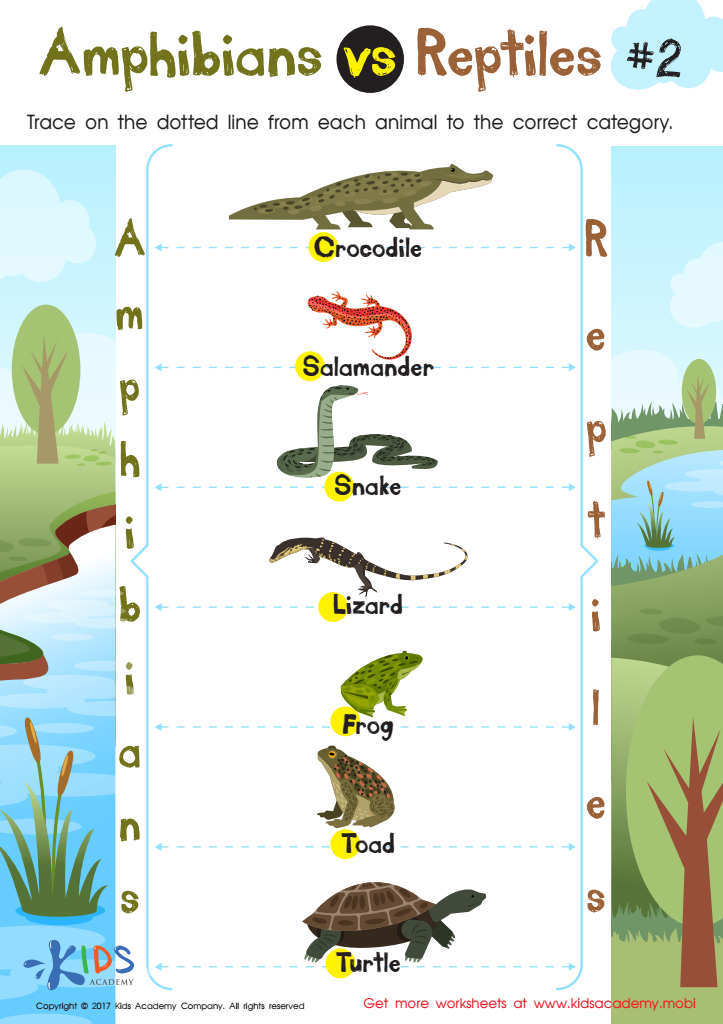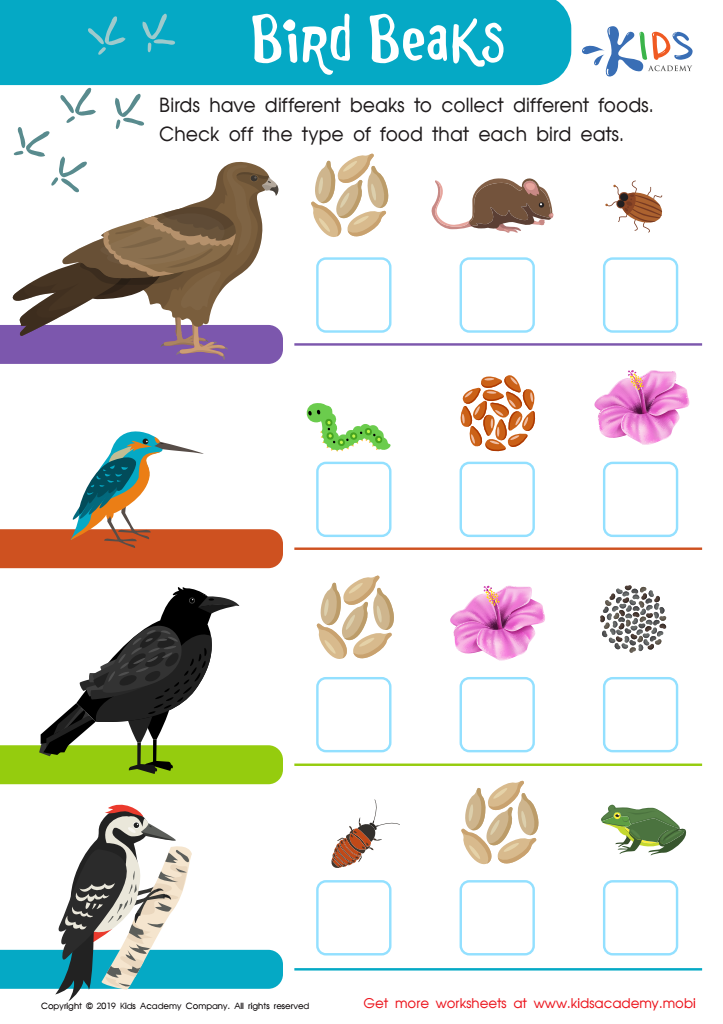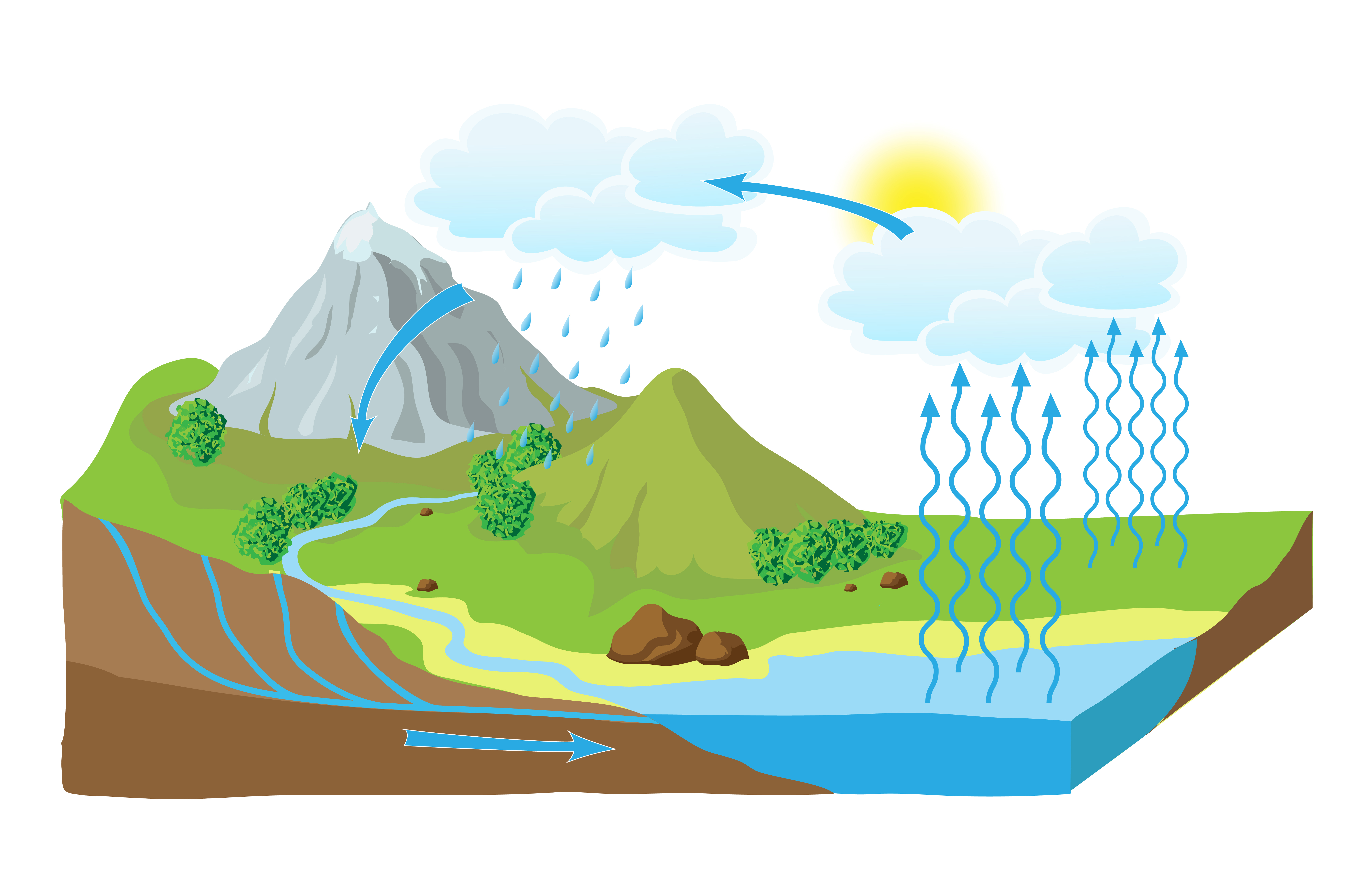Classification skills Normal Science Worksheets for Ages 6-8
5 filtered results
-
From - To
Enhance your child's learning with our "Classification Skills Normal Science Worksheets" designed specifically for ages 6-8. These engaging worksheets introduce young learners to the exciting world of classification in science, helping them categorize animals, plants, and various objects. Each activity fosters critical thinking and observational skills, vital for understanding scientific concepts. Ideal for home and classroom use, our worksheets encourage interactive learning through fun illustrations and easy-to-follow instructions. Whether it’s sorting by color, size, or type, children will develop essential skills while having fun. Explore our collection today to support your child's educational journey in a playful and effective way!


Matter: Assessment 1 Worksheet


Amphibians vs Reptiles Worksheet for 3rd Grade


Bird Beaks Worksheet


Animals and Plants: Assessment 2 Worksheet


Space: Assessment 2 Worksheet
Classification skills are essential for young learners, particularly in the context of Normal Science for ages 6 to 8. These skills allow children to group and sort objects based on shared characteristics, fostering an understanding of the natural world. As children engage in classification activities, they enhance critical thinking, observation, and organization skills that are foundational for their academic future.
In science education, classification serves as a gateway to deeper inquiry and exploration. When children categorize living organisms, physical properties, or materials, they learn to identify patterns and make connections, which are vital components of scientific reasoning. This skill helps demystify complex systems, making biology, chemistry, and physics more approachable.
Moreover, learning to classify encourages children to articulate their thoughts and discoveries. This verbal sharing cultivates communication skills critical for effective collaboration in group settings, which is important throughout their educational journey.
For parents and teachers, nurturing classification skills not only enriches a child’s scientific experience but also supports cognitive development and prepares them for more advanced concepts in later grades. Ultimately, fostering these skills equips children with the tools to understand their surroundings and become informed, inquisitive individuals.
 Assign to My Students
Assign to My Students










.jpg)









